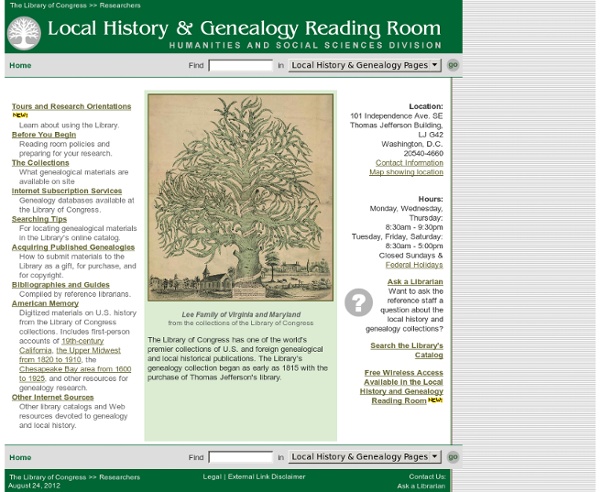



GenealogyBlog Genealogy - Texas State Library - Texas State Library and Archives Commission Genealogy Resources *Please note: TSLAC interactive exhibit spaces are closed to the public until further notice, and on-site visitor services are currently limited, due to concerns over the spread of coronavirus (COVID-19). See our services page for further information, updated regularly. The Genealogy Collection at the Texas State Library and Archives Commission includes vital statistics indexes, city directories, county records, publications such as printed family and county histories, a variety of Texas government records, federal census schedules and many other resources to help you compile your family history. Genealogy Resources at TSLAC Many of our frequently requested resources are highlighted below. Vital statistics indexes are an important part of the genealogical resources available at the library. Texas County Tax Rolls on Microfilm are available for on-site use from the early years of each county through the late 1970s. Archival Records Republic Claims. . Vital Records .
Encyclopedia of Genealogy - a service of Eastman's Online Genealogy Newsletter Family Genealogy | Genealogy on the Internet Getting Started on Your Family Tree Family mementoes Introduction The first task that faces every family historian when they begin research into an individual is to collect basic biographical details about the person under investigation. The events that are shared by everyone - birth and death - are the best place to start. In many cases marriage will also be on the list. '... birth and death - are the best place to start.' We have these records because, due to massive population expansion in the 19th century, civil registration for births, marriages and deaths was introduced in England and Wales in 1837, 1855 in Scotland and 1864 in Ireland. Before this date, other records exist that contain information about these events. First things The National Archives office, Kew, London When starting to create your own family tree, the first thing is to talk to as many family members as possible. ' You may uncover skeletons in the cupboard.' Visiting archives A visit to the archives Starting work
RootsWeb.com Home Page Free Genealogy Search Advice Free Genealogy and Family History Online - The USGenWeb Project TheShipsList: Passengers, Ships, Shipwrecks